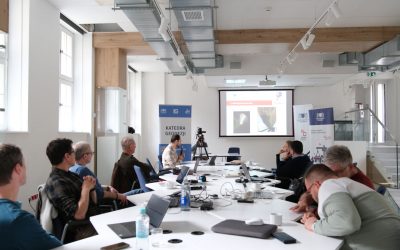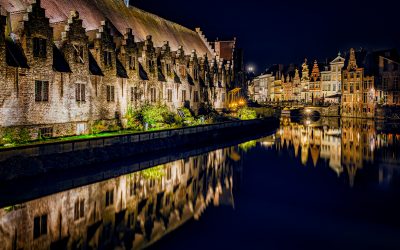The European Light Pollution Manifesto
The European Light Pollution Manifesto

Tackling noise and light pollution
for a Sustainable Tomorrow
The Path Towards Addressing Adverse Impacts of Light and Noise Pollution
on Terrestrial Biodiversity and Ecosystems
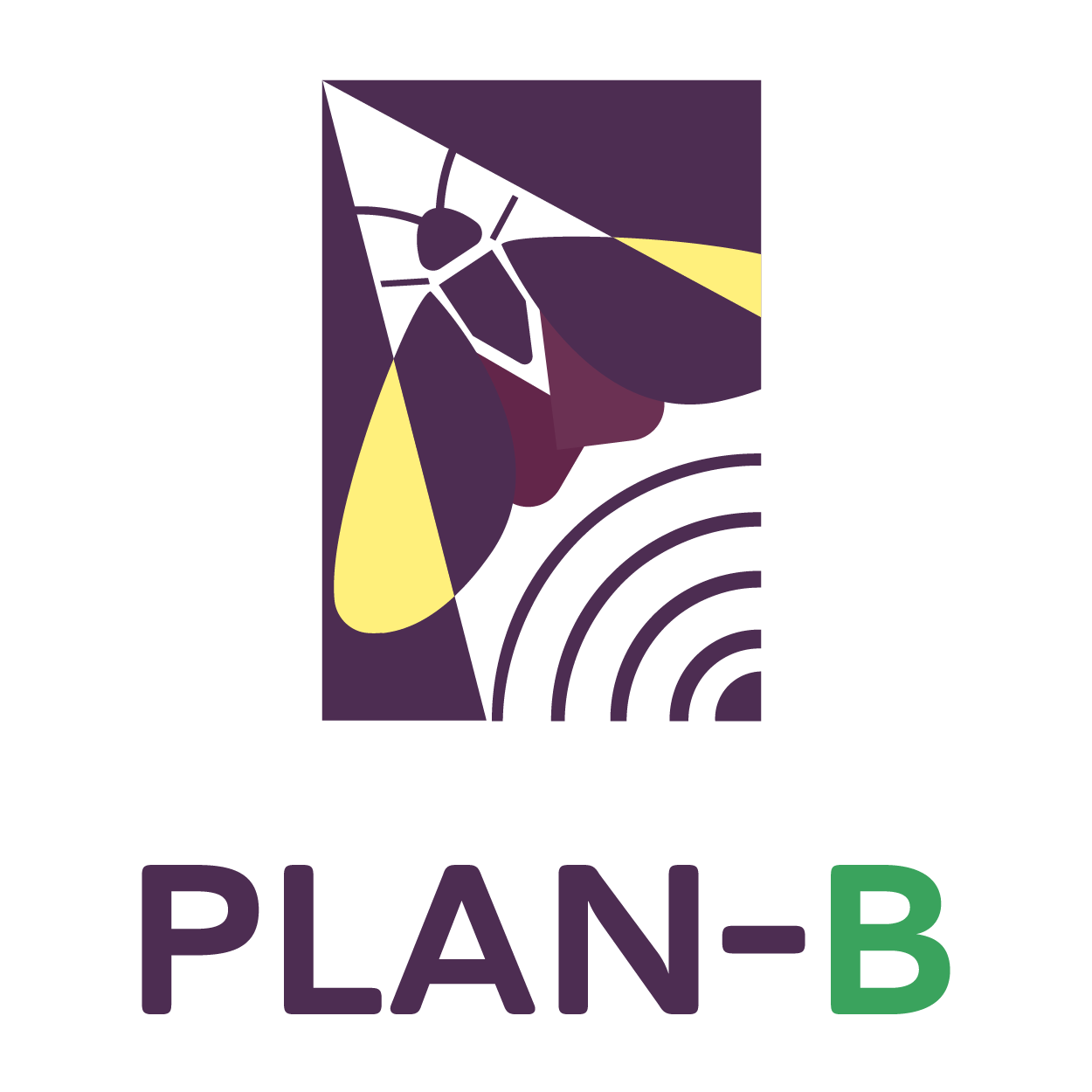
PLAN-B is an EU funded (Horizon Europe) project that aims to create the enabling conditions to support the activities planned in the EU Biodiversity Strategy for 2030, and provide new paths to tackle light and noise pollution in European ecosystems, according to the EU and international biodiversity targets.

4 years project

8 countries involved

12 consortium members

2.4M € Funding
Our PLAN-B Key Outputs
Knowledge Database
An open-access database on light and noise impacts on terrestrial biodiversity and ecosystem services.
New Scientific Models and Maps
Spatiotemporal models for evaluating noise and light impacts on the terrestrial environment, along with light and noise pollution maps of Europe.
Communities of Practice (CoPs)
Sustainable CoPs, focused on key stakeholder groups, addressing the impacts of light and noise on terrestrial biodiversity and ecosystem services.
Policy Briefs
Recommendations for strengthening legal and policy frameworks to reduce the impacts of light and noise pollution on terrestrial biodiversity and improve decision-making.
Handbook of Solutions
A compendium of established and innovative regulatory, social, environmental, planning, and technological solutions to mitigate light and noise pollution impacts.
Synthesis Report
A report on the current state and future trajectory of light and noise pollution impacts across Europe.
Join the PLAN-B Newsletter
The PLAN-B project newsletter shares with you the latest news about our project and its scientific activity, focused on tackling light and noise pollution in European ecosystems, together with new developments in evidence-based regulation.
Our PLAN-B latest news
[8-9 Nov 2024] Under One Sky gathering
Under One Sky is a virtual gathering that unites and expands the global movement to protect our night skies. This unique event welcomes everyone - from DarkSky places, chapters, and members to curious individuals just beginning to explore the importance of darkness....
Light and noise pollution issues in music festival in Poland
From September 6th to 8th, a controversial and illegal German-organized techno festival took place on Karsibór Island, a protected area under the Natura 2000 network. The event, called the Achterland Festival, caused significant disruption due to loud music, which...
[The PLAN-B Network] The Darker Sky Project Overview of its First Year
The Interreg North Sea Project DARKER SKY kicked off with a clear mission: supporting municipalities and ports to protect biodiversity with the implementation of light-reduction solutions balancing environmental concerns with the needs of people and cities. Over the...
Success in the First Citizen Science Workshop PLAN-B Project
On September 26, 2024, over 50 attendees had the opportunity to test the first version of the Lost at Night application and share their initial impressions. Lost at Night will be one of PLAN-B's results for the analysis of light pollution in Europe, providing new...
[The PLAN-B Network] Meet the AquaPLAN project
We dedicate our space to present initiatives and sister projects that work with us to tackle noise and light pollution in our ecosystems. This is the case of AquaPLAN, whose efforts are aimed at understanding and controlling the effects of pollution in marine...
[26/09/2024 Workshop] Citizen Science App presentation
A key component of the PLAN-B project involves citizen science activities aimed at understanding artificial light at night (ALAN) levels and contributing this data to our light pollution map of Europe. Citizen Science App presentation Online Workshop - Link to...
The PLAN-B first recap: 9 months of work so far to tackle light and noise pollution
At PLAN-B we have worked to lay the foundations of the research that will lead us to map light and noise pollution in European ecosystems, and we have studied in depth the existing legislation on this issue.
We have also established synergies with projects, communities and activists who will participate in our scientific activities and contribute to their dissemination.
Meet the PLAN-B consortium: UGent, Faculty of Law and Criminology
Ghent University's Faculty of Law is conducting a comprehensive analysis of the policies, laws, and regulations related to light and noise pollution. This analysis will serve as the foundation for future policy briefs, aimed at guiding the actions of the EU and...
Get involved!
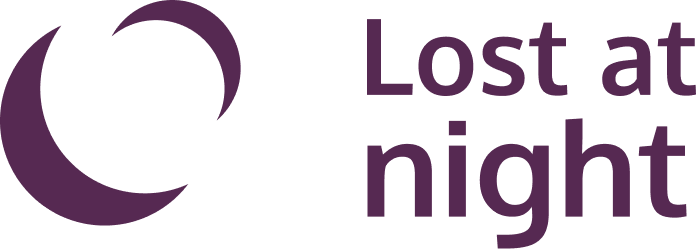
The Lost At Night application is designed to help georeference images taken by astronauts aboard the International Space Station (ISS).
The goal is to create a global map of Earth’s lights at night to measure and track light pollution. By accurately aligning images with geographical coordinates, the app contributes to valuable environmental data collection, which can be used for scientific research, monitoring light pollution, and understanding its impact on ecosystems and human health.
Lost At Night is an iniciative of the PLAN-B Project that uses citizen science methodologies to involve researchers, activists, enthusiasts and general public in tackling light and noise pollution across Europe. This application already brings up to date the previous ten years of work of the Cities At Night project.

Be part of the PLAN-B Community!
We invite you to take part in PLAN-B‘s activities and build a network of initiatives, researchers, activists, enthusiasts and the general public who want to contribute to tackling light and noise pollution in European ecosystems.
You will be able to participate in citizen science campaigns in the pilot areas of Gdansk (Poland), Leipzig (Germany), Belo Horizonte (Bazil) and Zaragoza (Spain), contribute to the mapping of the night sky with the Lost At Night app and take part in clustering events and dissemination of results together with sister projects, citizen groups and scientific associations.
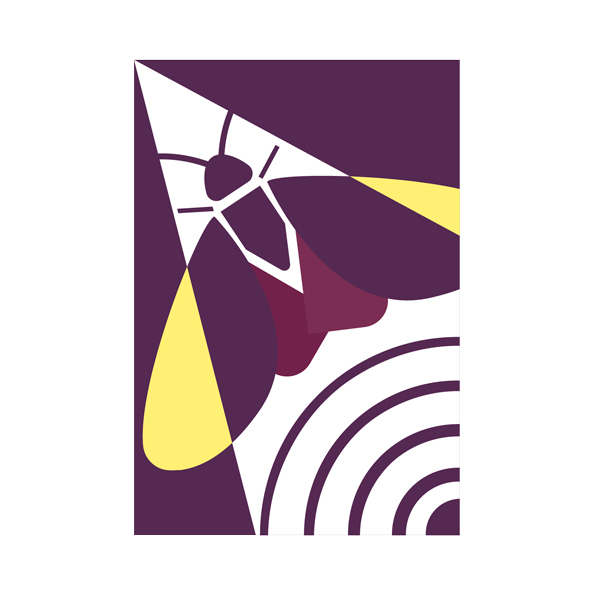
![[8-9 Nov 2024] Under One Sky gathering](https://plan-b-project.eu/wp-content/uploads/2024/10/aurora_monegrillo_3-400x250.jpg)
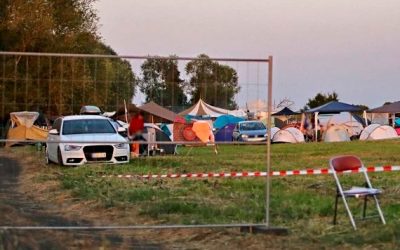
![[The PLAN-B Network] The Darker Sky Project Overview of its First Year](https://plan-b-project.eu/wp-content/uploads/2024/09/DKS_Interreg-400x250.jpg)
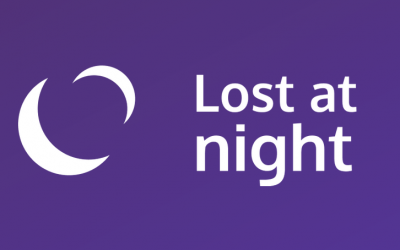
![[The PLAN-B Network] Meet the AquaPLAN project](https://plan-b-project.eu/wp-content/uploads/2024/09/PLAN-B.AquaPLANjpg-400x250.jpg)
![[26/09/2024 Workshop] Citizen Science App presentation](https://plan-b-project.eu/wp-content/uploads/2024/09/PLAN-Blost-at-night-workshop-400x250.png)
